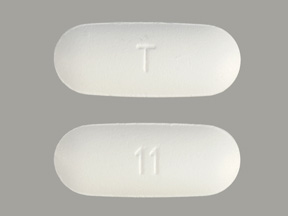
Levaquin Coupons & Savings Card – Discount Prices from $4.55
Brand for: Levofloxacin
My prescription
Edit
750MG, Levofloxacin (7 Tablets)
Select pharmacy

CVS
$19.17
COUPON PRICE
Walmart
$4.55
COUPON PRICE
Walgreens
$11.09
COUPON PRICE
Albertsons
$13.98
COUPON PRICELevaquin savings card
Show this card to your pharmacist
Walmart
$4.55
BIN
ID
PCN
GRP
019876
LHE624C3DE
CHIPPO
LHX
Powered by
More prescriptions for urinary tract infection
More prescriptions for urinary tract infection
Levaquin (Levofloxacin) dosage forms
Dosage Quantity Price from Per unit 250MG 3 Tablets $2.90 $0.97 250MG 7 Tablets $3.44 $0.49 250MG 10 Tablets $3.85 $0.39 250MG 14 Tablets $4.39 $0.31 250MG 20 Tablets $5.20 $0.26 250MG 21 Tablets $5.33 $0.25 250MG 30 Tablets $6.55 $0.22 250MG 50 Tablets $9.25 $0.18 250MG 60 Tablets $10.60 $0.18 250MG 100 Tablets $22.50 $0.23
| Dosage | Quantity | Price from | Per unit |
|---|---|---|---|
| 250MG | 3 Tablets | $2.90 | $0.97 |
| 250MG | 7 Tablets | $3.44 | $0.49 |
| 250MG | 10 Tablets | $3.85 | $0.39 |
| 250MG | 14 Tablets | $4.39 | $0.31 |
| 250MG | 20 Tablets | $5.20 | $0.26 |
| 250MG | 21 Tablets | $5.33 | $0.25 |
| 250MG | 30 Tablets | $6.55 | $0.22 |
| 250MG | 50 Tablets | $9.25 | $0.18 |
| 250MG | 60 Tablets | $10.60 | $0.18 |
| 250MG | 100 Tablets | $22.50 | $0.23 |
| 750MG | 7 Tablets | $4.55 | $0.65 |
| 750MG | 5 Tablets | $3.96 | $0.79 |
| 750MG | 10 Tablets | $5.43 | $0.54 |
| 750MG | 14 Tablets | $6.60 | $0.47 |
| 750MG | 20 Tablets | $8.35 | $0.42 |
| 750MG | 28 Tablets | $10.69 | $0.38 |
| 750MG | 30 Tablets | $11.28 | $0.38 |
| 750MG | 50 Tablets | $17.13 | $0.34 |
| 750MG | 60 Tablets | $20.05 | $0.33 |
| 750MG | 100 Tablets | $38.26 | $0.38 |
Is Levaquin a very strong antibiotic?
Levaquin, also known as levofloxacin, is considered a broad-spectrum antibiotic. It is effective against a wide range of bacteria and is often used to treat serious bacterial infections. As such, it is regarded as a strong antibiotic. However, its use should be guided by a healthcare professional to ensure it is appropriate for the specific infection being treated.
What is Levaquin used to treat?
Levaquin is used to treat a variety of bacterial infections, including respiratory tract infections, urinary tract infections, and skin infections. It is also used to treat certain types of pneumonia and bronchitis.
What are some side effects of Levaquin?
Levaquin, also known as levofloxacin, can cause several side effects. Common side effects include nausea, diarrhea, headache, dizziness, and trouble sleeping. More serious side effects may include tendon rupture, nerve damage, mood changes, and severe allergic reactions. It is important for individuals to contact their healthcare provider if they experience any severe or concerning symptoms while taking Levaquin.
Is Levaquin a penicillin?
Levaquin is not a penicillin. It is an antibiotic that belongs to a class of drugs known as fluoroquinolones.
What is the most common use of levofloxacin?
Levofloxacin is most commonly used to treat bacterial infections, including respiratory tract infections such as pneumonia and bronchitis, as well as urinary tract infections and skin infections.
